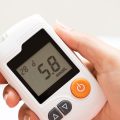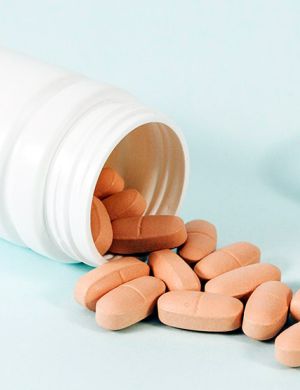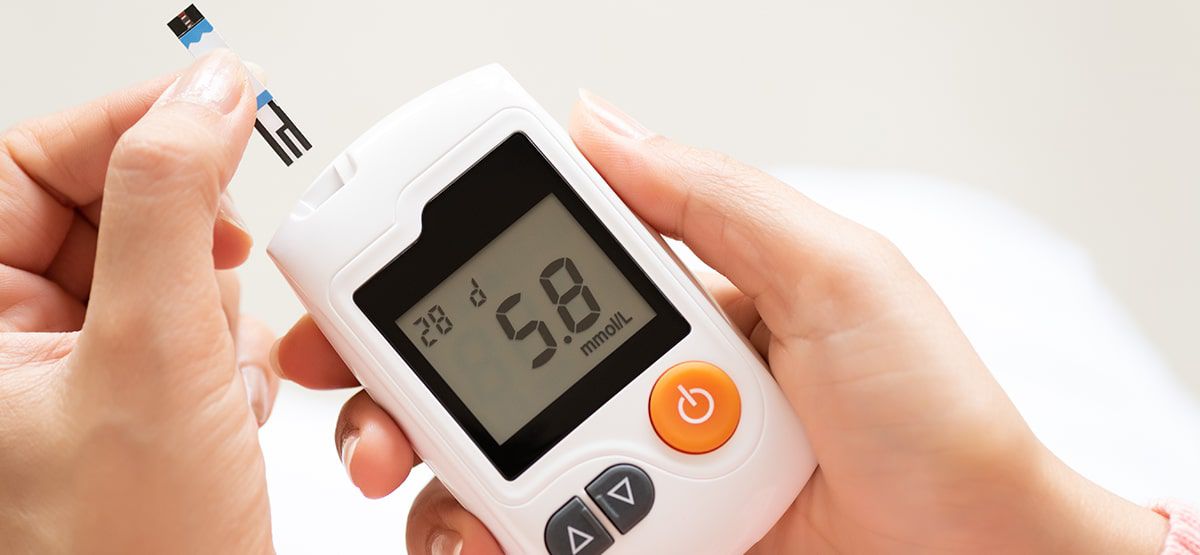
Medical Devices-Asia and ROW Regulatory News-July 2023
ASIA
SINGAPORE (HSA)
HSA’s SRA status for In-vitro Diagnostic Medical Devices (IVD)
An SRA is a national health products regulatory authority considered by the WHO to apply stringent standards for quality, safety, and efficacy in its process of regulatory review of health products for marketing authorization. With HSA being recognized as an SRA for Class C and Class D IVDs, these classes of IVDs registered with HSA qualify for abridged prequalification assessment by WHO. This is a significant testament of the quality and robustness of HSA’s scientific evaluation of IVDs.
HSA being recognized as an SRA for such IVDs may be beneficial to medical device companies. Major international purchasers, e.g. the United Nations agencies, rely on the listing by the WHO Prequalification Program. Hence, IVD manufacturers that register their IVDs with HSA may be able to use HSA’s SRA status to gain expedited listing under the WHO prequalification program, and as a springboard for faster access to various markets beyond Singapore.
CHINA (NMPA)
Notice of the Center for Device Evaluation of the State Food and Drug Administration on the release of the guidances for the clinical evaluation and registration review of the same variety of intervertebral fusion devices (2023 No. 20)
This guidance is applicable to the clinical evaluation of the same variety of conventionally designed intervertebral fusion devices. According to the current “Medical Device Classification Catalog”, the classification code of this type of product is 13-03-04, and the management category is Class III. The base material of the intervertebral cage is usually titanium and titanium alloy materials that comply with GB/T13810, and the grades are generally TA2G, TA3G, TC4 (Ti6Al4V), TC20 (Ti6Al7Nb), TC4 ELI (Ti6Al4V ELI), or YY / T The surgical implant of the 0660 is made of polyetheretherketone (PEEK) polymer. The developing wire is usually made of pure tantalum in accordance with YY/T 0966 or titanium and titanium alloy materials in GB/T 13810. Common processing techniques are machining and additive manufacturing (3D printing such as selective laser melting (SLM), electron beam melting (EBM), etc.). It is generally used in conjunction with spinal internal fixation systems for intervertebral fusion. This guidance does not include artificial vertebral bodies, new materials, specially designed intervertebral fusion devices and custom-made intervertebral fusion devices, etc.
Intervertebral fusion devices that have been marketed in China, if the declared product has brand-new technical features (such as adopting a new working principle, technology, material, structural design, surface treatment, etc.), or has a new scope of clinical application If the existing data cannot prove that the declared product is safe and effective, clinical trials may be considered to obtain clinical data.
Notice on Public Solicitation of Opinions on 3 Medical Device Registration Review Guidances including “Guidances for Clinical Evaluation and Review of the Same Type of Absorbable Surgical Sutures (Draft for Comment)”
This guidance is applicable to absorbable surgical sutures made of polymer synthetic materials, which are usually used for general soft tissue sutures. Materials covered include polyglycolic acid (PGA), polyglycolide-lactide copolymer (PGLA), polydioxanone (PDO) and other absorbable synthetic materials. Conventional sutures can be single-strand or multi-strand, and can be designed as knot-free barbed sutures or ordinary absorbable sutures without barbs, which can be impregnated with suitable coatings and softeners or process. According to the current “Medical Device Classification Catalog”, the classification code of absorbable surgical suture is 02-13-06, and the management category is Class III.
This guidance does not apply to products with completely new technical characteristics (such as adopting a new working principle, technology, material and proportion, structural design, processing method, surface treatment/coating, use method, etc.), or having a new clinical scope of application. This guidance does not apply to antibacterial coated sutures such as triclosan, class I sutures (absorbable animal origin) in the YY1116 “Absorbable Surgical Sutures” standard, and absorbable surgical sutures produced by recombinant DNA technology wait.
This guidance is applicable to single-use hemodialyzers, including low-flux dialyzers and high-flux dialyzers, used in medical institutions for acute and chronic adult patients with renal failure for routine hemodialysis treatment. The classification code of this product is 10-04-01, and the management category is three categories.
Administration on releasing 4 review points including the technical review points of imaging ultrasound artificial intelligence software (process optimization functions) (No. 23, 2023)
This review point is applicable to the registration of artificial intelligence software functions for process optimization in imaging and ultrasound products (hereinafter referred to as “ultrasound process optimization AI functions”). The above functions should be used by doctors with corresponding ultrasound diagnosis qualification and ability. The above functions are usually integrated in imaging and ultrasound equipment, and its product classification follows the imaging and ultrasound equipment. According to the current “Medical Device Classification Catalog”, the classification code of this type of product is 06-07, and the management category is Class II or III; if the above functions Integrated in independent software, the classification code is 21-02, based on the “Guidances for the Classification and Definition of Artificial Intelligence Medical Devices”, as a process optimization function, the management category is Class II.
Products used in medical institutions and/or medical laboratories can assist pathologists in providing information for disease diagnosis, prognosis, treatment, etc., and cannot be used as the only basis for clinical diagnosis decisions.
Announcement of the Center for Device Evaluation of the State Food and Drug Administration on releasing the guidances for the registration and review of the clinical evaluation of the same type of ventilator (No. 21, 2023)
This guidance is applicable to ventilator products used for life support, such as therapeutic ventilators, emergency and transfer ventilators, and high-frequency oscillation ventilators, as well as non-invasive ventilators used for life support. According to the current “Medical Device Classification Catalog”, the classification codes are 08-01-01, 08-01-02, 08-01-03, 08-01-04, and the management category is Class III.
Respiratory therapy products with deep learning parameter calculation/optimization or physiological closed-loop control functions, high-frequency jet ventilators, etc. are not applicable to this guidance, and the above-mentioned products can refer to the requirements of the applicable parts of this guidance.
Announcement of the Center for Device Evaluation of the State Food and Drug Administration on the release of guidances for the registration and review of 14 medical device products including blood melting equipment (No. 22, 2023)
The guidance is applicable to equipment that thaws clinical blood components. According to the “Medical Device Classification Catalog”, the product management category is Class II, and the classification code is 10-01-06. This guidance is only applicable to equipment that adopts the principle of constant temperature water thawing, and does not apply to thawing equipment based on the principles of microwave oven method, radio frequency method, and dry hot air method. The thawing part of the cryoprecipitate coagulation factor equipment can refer to this guidance, and the preparation part is not applicable.
The medical respiratory humidifier referred to in this guidance is a medical electrical device used to humidify the respiratory gas delivered to the patient, usually used in conjunction with respiratory therapy equipment, and generally consists of a main unit, a water storage tank and some accessories. Currently, some respiratory therapy devices also integrate humidifiers, such as sleep apnea therapy devices and high-flow respiratory therapy devices. This guidance also is applicable to the humidifier portion of these devices.
MALAYSIA (MDA)
MDA Approach on Expired EC Certificate for New Registration and Re-registration of Medical Device
EC Certificate (CE Marking) pursuant to Directive 90/385/EEC and 93/42/EEC is one of the approval types that is recognized by Medical Device Authority (MDA) for conformity assessment procedure by way of verification process for the purpose of medical device registration in Malaysia.
In principal, the certificate shall be valid during the new registration and re-registration submission. However, due to the unpredictable timeline and issues with regards to the transition to the EU MDR, and to ensure continuous supply of the medical device in the market, MDA has taken an approach to allow expired EC Certificate to be used for conformity assessment procedure by way of verification process with the registered CABs if the following conditions are met:
The devices continue to comply with Directive 90/385/EEC and 93/42/EEC; and
There are no significant changes in the design and intended purpose; and
The devices do not present an unacceptable risk to the health or safety of patients, users or other persons, or to other aspects of the protection of public health.
Announcement of Registration Application Transition Period with exemption from Compliance Assessment process by Compliance Assessment Body (CAB) to registration based on circular letter number 2/2014 for registration of Covid-19 test kits
The evaluation of the Covid-19 test kit during an emergency/pandemic will move to the registration phase in accordance with Number Circular 2/2014.
The termination of accepting applications for the registration of Covid-19 test kits in the existing process as in MDA/GL/07 Guidance for Registration of COVID 19 IVD Test Kits will be abolished on 31 July 2023.
Therefore, all applications for the registration of Covid-19 test kits need to go through an assessment process by a compliance assessment body (CAB) in the form of Verification or Full Assessment. The Covid-19 test kit that goes through the Full Assessment evaluation process must undergo an evaluation test at an MDA-accredited testing laboratory (ISO 15189 or ISO17025).
MDA will not issue any Evaluation Letter to the testing laboratory.
ROW
MEXICO (COFEPRIS)
Argentina, Brazil and Chile enter the dialogue for the integration of an international health agency
The effort to bring about a regional Latin American regulatory agency gained ground in recent weeks, with declarations of interest from regulatory authorities in Argentina, Chile and Brazil. The push to form a Latin American and Caribbean Medicines Agency (AMLAC) gained momentum earlier this year as a three-country initiative spearheaded by regulatory agency heads in Mexico, Colombia and Cuba.
The health agencies of Argentina, Brazil and Chile join this multilateral effort, endorsing the commitment of Latin American nations interested in discussing joint work to achieve health self-sufficiency for the benefit of the region.
A consistent theme of the AMLAC discussions has been bolstering regional self-sufficiency for drugs and medical devices, by supporting manufacturing and increasing flexibility toward intellectual property. Its proponents, the most outspoken of whom has been Alejandro Svarch, head of Mexico’s Federal Commission for Protection against Health Risks (COFEPRIS), have cited the difficulties Latin American countries have faced procuring vaccines during the COVID-19 pandemic and persistent drug shortages, as having inspired the effort. In a video published June 15, Svarch lauded the participating agencies for joining the fight “against indifference and inequality” that impedes regional self-sufficiency in medicines and devices. Svarch also expressed the need to build more confidence among the different regulatory agencies.
Dominican medicines agency splits from health ministry
The Dominican Republic’s medicines agency, DIGEMAPS, has separated from the country’s Ministry of Health, in a move that will allow it financial and administrative independence. On 5 June, the country’s president Luis Abinader, in a formal decree, declared DIGEMAPS to be its own entity, with the objective of improving the efficiency and quality of its services as the country’s regulator of medicines and medical devices, foods, cosmetics and other products for human use. The change is expected to take six months to fully execute, and will be led by Leandro José Villanueva, a former vice minister of health who has been chosen to head the independent DIGEMAPS.
SOUTH KOREA (MFDS)
Announcement of Renewal of Designation of Medical Device Technical Document Review Organization
In accordance with Article 15-2 of the Enforcement Rule of the Medical Devices Act (designation of technical document review institutions, etc.) According to the medical device technical document review agency, the review item fields are as follows this has changed. The.name of review organization: Daegu Gyeongbuk Advanced Medical Industry Promotion Foundation.
The list of changes that have been approved has listed. Almost Fourteen medical products are Changes Approved before and after, Check the below link for more information
AUSTRALIA (TGA)
Transition to new manufacturer evidence for IVD medical devices – Guidance for manufacturers and sponsors of IVD Medical Devices
This guidance is to help sponsors and manufacturers of In-vitro Diagnostic (IVD) Medical Devices transition to new manufacturer evidence requirements.
Sponsors who need to transition to new manufacturer evidence will need to act to ensure ongoing regulatory compliance. The extent of those actions will depend on a range of factors and this guidance covers a range of scenarios and examples to help identify the correct pathways and sponsor actions..
Don’t miss out! Click here to stay in touch.
Categories
- Biopharma (59)
- Consumer Health (22)
- Cosmetics (11)
- Diagnostics (5)
- Digital Health (8)
- Food (2)
- Medical Device (113)
- OTC (5)
- Regulatory Intelligence (13)
- Standards (41)
Recent Blogs
Get the latest updates from Vistaar

Related Posts
CONNECT WITH US

Let's talk about how Vistaar can help you




